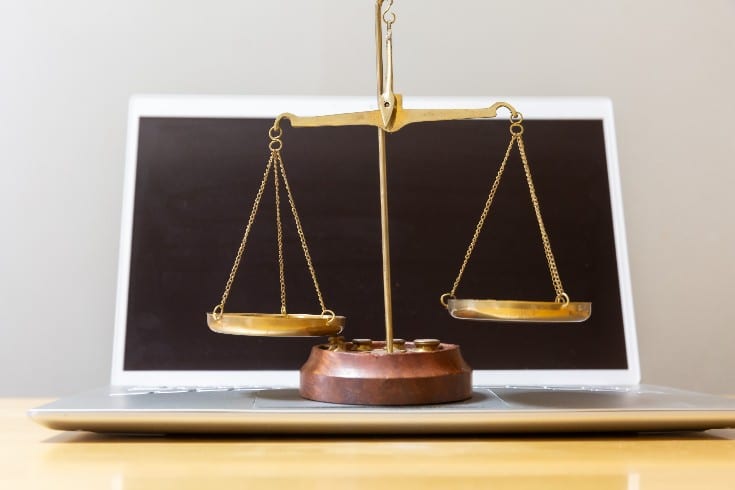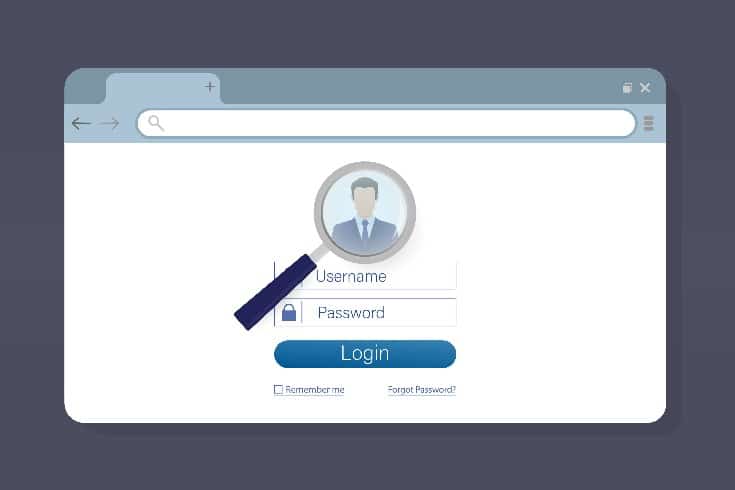How to Remove Unwanted Google Search Results Through the Court

If there is a page containing defamation, the basic course of action is to request its removal through a professional such as a lawyer. However, there are cases where it is difficult to achieve ‘page removal’ itself, such as when the operator of the page is unknown. In such cases, even if you can’t delete the page itself, you might consider whether it’s possible to prevent the page from appearing in Google’s search results. In other words, ‘removal from Google search results’. Can this removal be requested through a court procedure?
Page Deletion and Removal from Search Engines
The basic strategy for dealing with reputational damage is to delete the offending post itself. For instance, if a post that could cause reputational harm is made on a bulletin board like 5channel, the best course of action is to remove the post. If the article itself does not exist, there will be no one to see it. Such article deletions can be requested through out-of-court negotiations, or, if these negotiations fail, through a swift procedure called a ‘provisional disposition’ via the courts.
However, when considering deleting an article through the courts, issues such as international jurisdiction come into play. To put it simply, it is not possible to request deletion through a Japanese court for servers operated overseas without considering Japanese users.
Given these circumstances, if it is not possible to delete the article itself, the goal becomes to ensure that no one sees the article, even if it remains on the internet. In the current structure of the internet, most articles are viewed via search engines. Therefore, if the article disappears from the search engine, almost no one will read it.
So, in such cases, the aim is to request search engine operators like Google and Yahoo! not to display the article in their search results.
Court Cases Denying the Removal of Search Results
Regarding this issue, there are court cases that state, “In principle, it is not possible to request the removal of search results from search engines like Google.”
Case Involving the Search Engine Yahoo!
For example, there is a judgment concerning not Google, but Yahoo!’s search engine, as follows:
“Even if a webpage containing illegal expressions is displayed as a search result of a search service, the operator of the search service is not the one making the illegal expressions, nor is it managing the webpage. Given the nature of the search service, the operator is not in a position to judge the content or legality of the webpages displayed as search results. Considering the role of search services in modern society, removing a specific webpage containing illegal expressions from the search results of a search service would significantly limit the opportunities for communication and contact with society regarding expressions on the webpage that are not illegal. Therefore, a person whose personal rights are violated by illegal expressions on a webpage can exceptionally request the operator of the search service to remove the webpage from the search results as a legal claim, without requesting the person making the expressions to remove them, only in cases where the illegality of the webpage itself is clear, and the whole or at least a large part of the webpage is illegal, and despite recognizing its illegality upon receiving a request, the operator of the search service leaves it as it is.”
Tokyo District Court, February 18, 2010 (Heisei 22)
This judgment takes into account the circumstances that “the operators of Google and others are not making illegal expressions themselves” and “they are not managing the pages making illegal expressions themselves”, the judgment that “search engines, due to their system, are not in a position to judge the legality of webpages that are search results in principle”, and the background circumstances such as the role of search engines, and views the situations where search result removal requests can be made to search engines very narrowly. In other words,
- The illegality of the webpage that is a search result is clear
- The illegal part constitutes the whole or at least a large part of the webpage
Only when both of these conditions are met, is the judgment made. In such cases,
- First, apply for search result exclusion out of court, and if the search engine does not remove it
- After 1, seek removal through the court
Only by following these steps can you seek the removal of search results in court.
This can be said to be a judgment that significantly narrows down the cases where the removal of search results is recognized, both in substance and in procedure.
Case Indicating that Only the Contents in the Snippet are Subject to Judgment
“The facts that the defendant indicates to the users of this search service by displaying the search results are the existence and location (URL) of the website (linked site) that includes the search word in its contents and a part of its contents (the part of the contents of the site that includes the search word, displayed as a snippet). It is appropriate to recognize that these are the only facts.”
Kyoto District Court, August 7, 2014 (Heisei 26)
This may be a bit difficult to understand, but it is a problem of the judgment framework when judging whether the search results of search engines like Google are illegal or not. It is not possible to request the removal of search results just because an illegal page appears in the search results, and it is not possible to request the removal of the search results unless there is an illegal content in the page summary (snippet) within the search result screen.
Such court cases have set a high hurdle for recognizing removal, by limiting the involvement of search service operators like Google in search results, stating that “the operator of the search service itself is not making illegal expressions, nor is it managing the webpage”, and emphasizing “the role of search services in modern society”.
Court Cases Acknowledging the Removal of Search Results
However, there are cases where the court has acknowledged the removal of search results as follows:
The debtor argued that the provider of the search service should not be obliged to remove search results, as the debtor does not make any representations about the accuracy or legitimacy of the search results due to the public interest of the internet search service provided by the site in question. Indeed, it is a well-known fact that the use of internet search services plays a crucial role in efficiently using the internet today. However, it is clear that the items listed in the first paragraph of the main text in the posted article are infringing on the creditor’s personality rights from the title and snippet itself, and even if the debtor is obliged to delete the posted article based on the description of each title and snippet of the posted article, it cannot be said that this would be unfairly disadvantageous to the debtor (in fact, according to the explanatory documents [Ko 7, Otsu 5 to 7], it is recognized that the debtor has a system to delete articles that the debtor has judged to be illegal from the search results of the site in question). Moreover, it is hard to say that it is a legitimate interest of those who use the site in question to be able to search for websites that clearly contain descriptions that harm the personality rights of others. Therefore, the debtor’s above argument cannot be adopted.
Furthermore, the debtor argues that the debtor should not be obliged to remove search results as a rule because if the debtor requests the administrator of the website linked from the search results of the site in question to delete it, it would be sufficient as a right relief. However, it is recognized that the items listed in the first paragraph of the posted article index are infringing on the creditor’s personality rights from the title and snippet of each posted article itself, so it is natural that the debtor who manages the site in question has an obligation to delete it, and the debtor’s above argument cannot be adopted as long as it contradicts this.
Tokyo District Court Decision, October 9, 2014 (Heisei 26)
As such, whether it is possible to request the removal of search results from a search engine through a court was a topic of various opinions until a little while ago. There were several judgments at the district court level, but the Supreme Court had not made a judgment on this issue, and a judgment by the Supreme Court was awaited.
However, as a lawyer dealing with reputational damage measures, I believe that the removal of search results should be “naturally” acknowledged as these court cases suggest. The reasons are as follows:
First, in the case of general page deletion, for example, if a blog article is illegal and you request the deletion of that article, not only the blog operator who wrote the blog article but also the blog operating company and the server operating company can be defendants in court. In other words, if a person who has been defamed by a blog article does not know who the blog operator who wrote the article is, they can request the blog operating company or the server operating company to delete the article.
Regarding this, the court explains that the blog operator and the server operating company also have a “duty of deletion in principle”.
The blog operator and the server operating company did not write the blog article themselves. However, they are simply managing and operating a blog service or server where illegal articles have been created by a third party. Even so, if an illegal article that defames someone’s reputation is published on the blog service or server they manage and operate, and if they are the manager and operator, they can delete the article, so the manager and operator have a “duty of deletion in principle” to delete the illegal article. This is the reason why you can request the deletion of a blog article from a blog operating company or a server operating company.
Search Engine’s Obligation to Remove Content
Even in the case of search engines, it can be said that the provision of search results has an aspect of “expression by the search engine operator itself” within its system. Indeed, search engine operators like Google are not the ones who wrote the illegal articles, and by nature, they are “not in a position to judge the content or legality of the web pages displayed as search results”. However, they have a system in place to “remove articles deemed illegal” from search results. Given that they can remove articles that constitute defamation and the like, it is naturally considered that “an obligation to remove arises”.
As will be mentioned later, it is said that the current Supreme Court recognizes the removal of search results when it is clear that the need for removal outweighs the need for publication. If the removal of search results is not recognized unless it is “clear”, unlike the case of page removal itself, the question arises as to why this difference occurs.
A Certain Conclusion was Indicated in the Supreme Court Decision of 2017 (Heisei 29)
Request for Removal of Arrest Articles from Search Results
The question of whether it is legally possible to request the removal of search results from a search engine has been a topic of debate. However, in 2017 (Heisei 29), the Supreme Court of Japan provided a certain conclusion. The conclusion indicated by the Supreme Court is that, at least, if it is clear that the necessity for removal outweighs the necessity for publication, it is possible to request removal.
This case began in November 2011 (Heisei 23) when a person who was arrested for violating the so-called pre-amendment Japanese Child Pornography Prohibition Act (Act on Punishment of Activities Relating to Child Prostitution and Child Pornography, and the Protection of Children) and fined the following month, requested Google to remove the arrest article from the search results.
Temporary Injunction Granted by the District Court Once Allowed Removal of Search Results
Removal of search results from a search engine can be achieved not through a “trial” but through a swift “temporary injunction” procedure. This case also began as a temporary injunction case in the Saitama District Court. The creditor’s attorney (a concept similar to the “plaintiff” in a trial) argued that Google, which displays the arrest article in the search results, is infringing on privacy, and requested the removal of the search results. In response, the Saitama District Court issued a decision (similar in meaning to a “judgment” in a trial) allowing the removal, stating that the display of the arrest article in Google’s search results is a privacy violation.
The High Court Made a Second Judgment and Did Not Allow the Removal of Search Results
However, against this decision, Google filed a “preservation objection”. This is a technically difficult story, but it is a concept similar to an “appeal” in a trial. The losing side in a temporary injunction case can ask the court for a second judgment by filing a “preservation objection” instead of an “appeal”. And this preservation appeal trial (a procedure to make a second judgment) indicated that the arrest case in question has not yet lost its public nature, and therefore privacy infringement cannot be recognized. In this High Court decision,
It is recognized that the arrest article in question is posted on an electronic bulletin board on the Internet, and it is presumed that many facts and opinions unrelated to the crime in question are posted. In that case, instead of asking the original site administrator to delete individual posts, deleting the web page linked to the search results from the search results or taking measures to hide it, considering the large share that the appellant has in the search service business and the extreme difficulty of directly discovering the URL of a site on the Internet, it can be evaluated as making public access to them virtually impossible, and it is recognized that it results in infringing on the freedom of expression and the right to know of a large number of people who cannot be overlooked.
In other words, unlike when requesting the deletion of individual posts from the bulletin board operator, deletion from the search results makes access to posts unrelated to the arrest article difficult, so from the perspective of the search engine, the “disadvantage” is large and should not be easily recognized, is the logic.
The Supreme Court Allowed the Removal of Search Results
Then, in response to this, a procedure similar to an “appeal” was taken by the attorney, and the Supreme Court made a decision, which is the problem situation. The Supreme Court made a judgment on the case that started from the temporary injunction. This Supreme Court decision, as mentioned above, showed a framework that allows deletion if the necessity for deletion and the necessity for publication are compared and it is clear that the former outweighs the latter.
The attorney for the appellant (due to the procedure, many technical terms appear, but it means something like a “plaintiff”) made a counterargument about the indication in the above High Court decision, in summary,
- In the case of copyright infringement, if copyright infringement is recognized in part of the page, the entire page is clearly prohibited from being published under copyright law
- For personality rights infringements such as privacy infringement, the Supreme Court has indicated in the so-called Northern Journal case that there is a right to request the suspension of article publication (right to request injunction)
- This legal theory clearly applies to cases such as privacy rights
He made a counterargument.
Regarding these discussions, the Supreme Court made the following judgment.
On the other hand, a search business operator collects information posted on websites on the Internet in a comprehensive manner, saves its copy, organizes the information by creating an index based on the copy, and provides the information as search results in response to certain conditions indicated by users. Although this collection, organization, and provision of information are automatically performed by a program, the program is created so that it can obtain results in accordance with the search business operator’s policy on the provision of search results, so the provision of search results has an aspect of expression by the search business operator itself. In addition, the provision of search results by a search business operator supports the public in transmitting information on the Internet and obtaining necessary information from a vast amount of information on the Internet, and plays a major role as the foundation of information distribution on the Internet in modern society. Therefore, if the provision of specific search results by a search business operator is deemed illegal and forced to be deleted, it can be said that it is not only a restriction on consistent expression in accordance with the above policy but also a restriction on the role played through the provision of search results.
Considering the nature of the provision of search results by a search business operator as described above, whether the act of a search business operator providing information such as the URL of a website where an article containing facts belonging to a person’s privacy is posted as part of the search results in response to a search request for a certain person is illegal or not should be judged by comparing and weighing various circumstances related to the reason for providing the information such as the URL as search results and the legal interest of not publishing the facts, such as the nature and content of the facts, the range in which the facts belonging to the person’s privacy are transmitted by providing the information such as the URL, the degree of specific damage suffered by the person, the person’s social status and influence, the purpose and significance of the article, the social situation at the time the article was posted and the subsequent changes, and the necessity of describing the facts in the article. As a result, if it is clear that the legal interest of not publishing the facts is superior, it is reasonable to interpret that it is possible to request a search business operator to delete the information such as the URL from the search results.
Supreme Court decision, January 31, 2017 (Heisei 29)
This decision, simply put, adopts a judgment framework that allows deletion if the “reason for excluding search results” and the “reason for displaying as search results” are compared and it is “clear” that the former outweighs the latter. However,
- Why does it have to be “clear”?
- If it is just “slightly outweighing”, in other words, if it is not clear that it is outweighing, is deletion not allowed?
These are still topics of ongoing debate, and it is thought that the practice could change with future case law.
Category: Internet





















